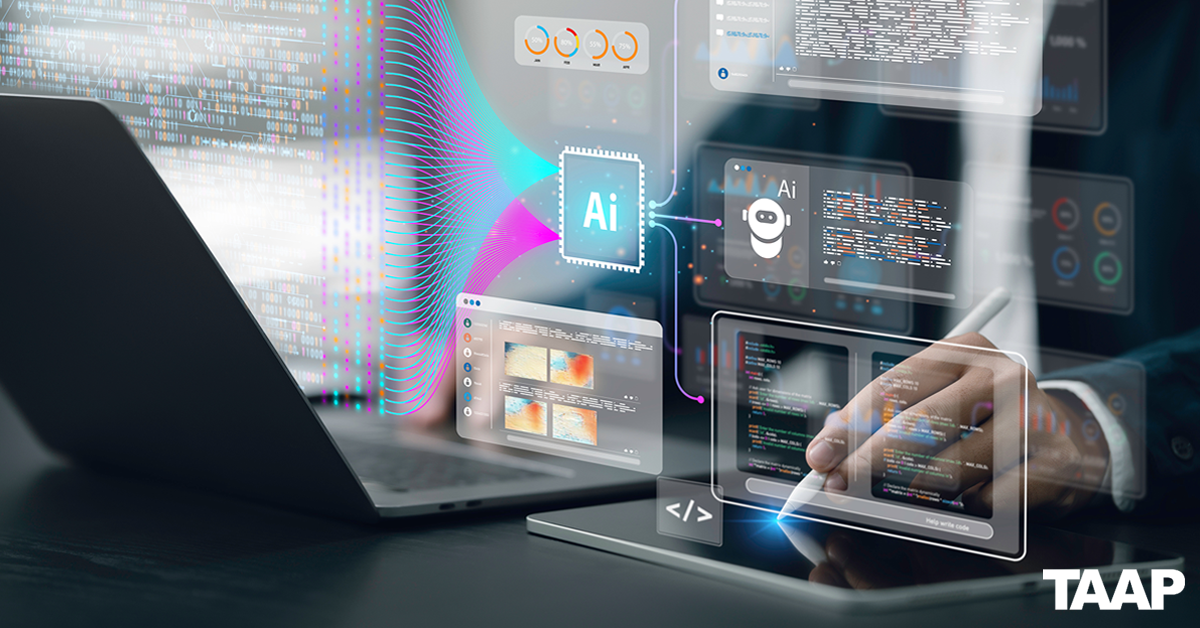The Impact of AI on the Software Development Life Cycle: From Implementation to Knowledge Engineering
July 30, 2024

Contents
Over the past fifty years, software engineering has predominantly focused on “Implementation,” involving writing and deploying of code to solve specific problems. However, a noticeable shift is occurring with the rise of Artificial Intelligence (AI) and tools like Generative Pre-trained Transformers (GPT). We are moving from merely implementing solutions to engaging in “Knowledge Engineering.” This shift is not just a technological upgrade; it signifies a fundamental change in how we develop software and utilise AI across various markets.
The Evolution from Implementation to Knowledge Engineering
Implementation Era: Traditionally, software development has centred on manual coding, extensive testing, and ongoing maintenance. This approach has demanded significant time and resources, often leading to substantial technical debt.
Knowledge Engineering Era: AI-driven tools are propelling us into a new phase. The goal now is to leverage AI’s capabilities to automate, enhance, and streamline various aspects of the software development life cycle (SDLC).
What is Knowledge Engineering?
Knowledge Engineering involves creating systems that mimic human intelligence using structured and unstructured data. The key components include:
Data Acquisition: This involves gathering data from multiple sources, such as historical records, real-time inputs, and external databases. The quality and relevance of this data is crucial as it directly impact the effectiveness of AI models.
Data Processing and Analysis: AI algorithms process and analyse this data to extract meaningful insights and patterns. Advanced analytics and machine learning techniques help identify trends and predict future outcomes.
Knowledge Representation: The acquired knowledge is structured so AI systems can understand and use it effectively. This often involves creating semantic network and other models to represent relationships between data elements.
Reasoning and Decision-Making: AI models are implemented to reason and make decisions based on the represented knowledge. This includes using inference engines and decision-support systems that simulate human thought processes to provide actionable insights.
Benefits of Knowledge Engineering to Organisations
One of the biggest advantages of knowledge engineering is improved decision-making. AI systems, by leveraging vast amounts of data, can provide insights that enhance decision-making processes. This allows companies to make more informed and strategic business choices, helping them navigate complex markets and adapt to changing conditions with greater agility.
Efficiency and productivity see a significant boost as well. By automating routine tasks and optimising workflows, employees can focus on more valuable activities. This not only increases overall productivity but also improves employee satisfaction, as they can engage in more meaningful and creative work.
Companies that embrace knowledge engineering can also innovate faster and more effectively. The ability to quickly process and analyse large datasets enables rapid prototyping and testing of new ideas. This fosters a culture of innovation, helping companies maintain a competitive edge in their industry.
Cost savings are another critical benefit. Reducing manual processes and minimising technical debt can lower operational costs significantly. AI-driven tools help maintain and refactor codebases, ensuring that software systems remain robust, scalable, and easier to manage over time. This translates to long-term savings and more efficient use of resources.
The Role of Large Language Models (LLMs)
LLMs like GPT have reached impressive levels of sophistication. While achieving Artificial General Intelligence (AGI) is still a distant goal, the combination of various technologies can give an appearance of AGI, enhancing the capabilities of existing systems. LLMs have the potential to significantly boost employee productivity. Rather than replacing jobs, AI can empower the workforce, making them more efficient and capable.
However, integrating LLMs into business processes comes with challenges. Compliance with industry standards and regulations is crucial. Effective governance frameworks are needed to oversee the development, deployment, and use of AI systems, ensuring transparency and accountability. Legal issues such as liability for AI-driven decisions and intellectual property rights must be carefully managed. Ethical considerations, including fairness, preventing biases, maintaining user privacy, and avoiding misuse of AI technologies, are also critical.
Future Outlook
The transition from implementation to knowledge engineering brings its own set of challenges, but it also promises an exciting future for software development. By embracing AI and integrating it into the SDLC, companies can unlock new levels of innovation, efficiency, and scalability. The potential benefits far outweigh the challenges, marking a revolutionary step forward in how we develop and deploy software solutions.
